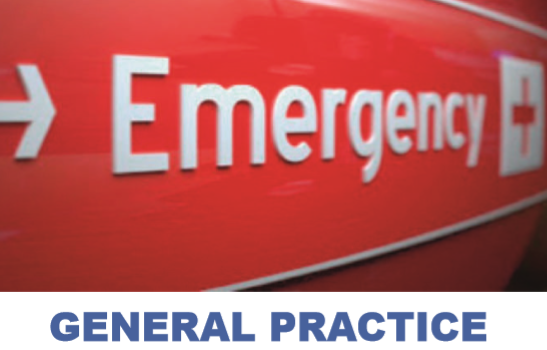
Violent incidents at GP surgeries have doubled in the last 5 years. Recently, a patient at my surgery stood in the waiting room, shouting at reception staff while waving their facemask around – their aerosols a potential threat to other patients, and clearly intimidating everyone present. Whilst battling to keep services running safely during Covid we were accused of being ‘closed’, ‘not wanting to see patients’, being ‘lazy’ and ‘overpaid’. We were also called Nazis. And sheep.
Whilst we have always had to deal with some patients who find emotional regulation difficult in stressful situations, the documented increases in violent behaviour of patients towards staff in medical settings – typically in General Practices and A&E Departments – is another testament to the effects of the systemic neglect and pejorative framing of GPs we have endured from this government.
In addition to managing the illness burden directly due to Covid and now also the 1.8 million people with Long Covid, we are literally being attacked by anti-vaxxers and anti-maskers.
It is important not to underestimate the anxiety and feelings of abandonment felt by patients who cannot get an appointment, or feel rushed through it when they do; have heard nothing from their referral or had their appointment, investigation or treatment delayed, postponed or cancelled. Patients who cannot get their medications because of shortages; cannot get an ambulance because the whole system is now choked. The sense of powerlessness to mitigate any of this is infuriating for patients and GPs alike. To top it off, we have government again fuelling the well-worn tabloid narrative of ‘fat cat, lazy GPs’. The systematic trashing of the very people trying to help seems counterintuitive, but it is purposefully weaponised in order to reduce our ability to garner public support to resist the political manipulation of the NHS since 2010.
The sour taste of Jeremy Hunt’s glib and false rendering of a study in 2015 – that ‘11,000 patients died avoidable deaths because junior doctors don’t work at weekends’ – was a deliberate attempt to undermine support for doctors, who were rightly pointing out that spreading the already depleted workforce even thinner risked even more avoidable deaths.
The current GP crisis is caused by both a fall in GP numbers and a rise in patient demand. Chronic disease management becoming more complex and intensive is one reason for the demand, and the backlog of unmet and deferred need from the effects of Covid in our hospitals is another; but there is significant evidence that the burden of disease and ill-health itself has increased due to failed public health governance since 2010.
Falling average life expectancy and the widening gap between richest and poorest are worrying markers for a country in decline. The real burden of ill health -caused by a lack of affordable or decent housing, real poverty, insecure employment, and a failure to properly regulate the food, drug, and gambling industries – falls often in the first instance at GPs’ doors. And of course, when patients’ medical journeys increasingly stall or encounter problems, patients are usually directed to ‘see GP’.
Since 2010, Government has closed 25% (in real terms) of the country’s general and acute hospital beds, and closed or merged 1,500 GP Practices and over 100 A+Es. Failure to plan or budget for staff has seen a 10.7% fall in the number of qualified FTE GPs per 100,000 (excluding registrars and locums) since 2015. We have the lowest ratios of doctors, nurses, beds, and CT/MRI scanners of almost all comparable countries, and yet we have the highest rates of GP consultations. Without these most basic of resources, it is no wonder that our outcomes for cancer, strokes and heart attacks are poorer than they would otherwise be.
A big industry-led push, just over the horizon, is seeking to make the digital ‘total triage’ GP model (GP access only via online forms or commercial software) the default means of access to primary healthcare for patients. A little beyond that will be Call-Centre Medicine: replacing the current model of personal care, which prioritises continuity and geographical relevance, with a ‘convenience’ model based on centralised provision, flow management, cost-saving, and algorithms.
New entrants to medical school have increased, but these will take at least eleven years to filter through education and training to become GPs. Out of 500 new medical school places, 70 are in the UK’s first private medical school. It’s quite likely that the private placements will be filled mostly by overseas graduates, who will likely return overseas once graduated.
Things could be improved by a systematic attempt to recruit GPs and Nurses from overseas and by financial measures to retain the existing workforce. We haven’t seen either. Immediate measures which would really free up GPs would be to remove all managed care performance target-linked payments to GPs. All funding should be bracketed and transferred to core funding so that GPs are actually able to use the money to recruit staff and improve services for their local populations as was done before 2004. Nursing bursaries should be revived and enhanced. Emergency funding should be given (back) to Councils to build new, truly affordable housing and to properly fund social care.
Levelling up should be mandated upon Government, not sloganised in fairy lights. Bizarrely though, it appears as if they would rather see us fail.
Nick Mann is a GP in London, and a member of Keep Our NHS Public

Leave a Reply